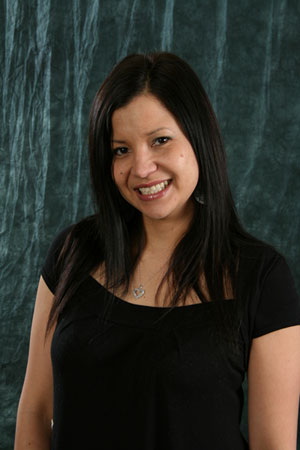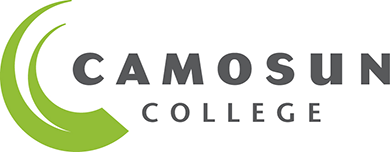Linking culture to business—the best of both worlds
Archived Content
This archived web page remains online for reference, research or record-keeping purposes. This page will not be altered or updated and may contain out of date information. If you’re looking for specific information and haven’t found it, please contact communications@camosun.ca.
July 30, 2009
Business goals and Indigenous culture often pull in different directions.
For Indigenous people, cultural objectives tend to be superseded by the pursuit of profit. Yet, cultural authenticity is essential to individual identity and self-worth, and absolutely core to the survival of a healthy community.
Introducing the Indigenous perspective into business education
A year ago, Camosun College created a unique new program, the Indigenous Business Leadership (IBL) Diploma. It prepares graduates to use business skills within the context of celebrating and honouring local Indigenous culture.
 |
Ann-Marie Livingston |
"Business and cultural values can co-exist," says Ann-Marie Livingston, an IBL student finishing the first year of the two-year program.
Ann-Marie's Aboriginal heritage is Pacheedaht, a branch of the Nuu-chah-nulth located on the Gordon River in Port Renfrew, a west-coast village a couple hours drive north of Victoria. After growing up in Victoria, she completed a diploma in First Nations studies and then worked within her community in Port Renfrew for a decade, helping develop treaty negotiations. However, she found that in order to be most effective in supporting her community, she lacked sufficient financial management or budgetary skills.
"I came to Camosun's IBL program specifically to brush up on my business skills and blend the Indigenous perspective," says Ann-Marie. "I am learning that instead of having business done to us (as Aboriginal people), we are able to do business with others."
Added to business skills such as reading financial statements, preparing budgets and managing expenditures, the Indigenous perspective considers differing social needs, a consultation process, and collaborative decision making. "Instead of a coercive or authoritative management style, we take time for dialogue and building consensus," says Ann-Marie.
Also important to the program's participants is the supportive community formed by the eleven participants and the instructors.
Taking it to the real world
"I ask the students how the business theories are actually going to look in their real worlds," says Susanne Thiessen, IBL program leader. "These (Aboriginal) students have seen the struggle going on in their communities, and they choose to take this program so they can develop effective strategies for change."
A highlight of the program so far has been a field trip to Osoyoos, BC. Here, students toured highly successful Nk'Mip First Nation business ventures, developed on their own lands by tapping into the major economic activity of the area.
Ann-Marie plans to develop economic self-sufficiency for the hundred or so Pacheedaht people presently living in poor conditions in Port Renfrew. Already a tourism magnet, Port Renfrew is famous for a wealth of beautiful beaches, the West Coast and San Juan trails, and great sports fishing. "We have land and the potential to develop a world-class resort," she says.
Success is likely. "When I first met Ann-Marie, she demonstrated she had a capacity to be a leader, with a strong sense of herself as an Aboriginal woman," says Susanne. "This sense of identity and commitment to personal values is core to retaining what is truly valuable in Indigenous communities."
Ann-Marie's commitment to helping Aboriginal communities extends into her new role of promoting the IBL program to high school students.
"Change will take time and knowledge, and most important, we must stay mindful of the connection with our culture," she says.
Her eventual plans include a Masters of Indigenous Governance or Masters of Business Administration.
Indigenous Business Leadership program
The two-year program is comprised of a core of Indigenous Business Leadership courses complemented by required courses selected from the general business curriculum. Classes include a mix of lectures, group-work simulations, sharing circles, guest lecturers and case-study activities.
The core courses are developed and primarily taught by Indigenous people or co-taught with Camosun's School of Business Faculty and reflect current Indigenous realities and concerns. There are opportunities to mentor with Indigenous professionals and complete a significant community enterprise project with an Indigenous community or organization.
For more information contact Susanne Thiessen, Indigenous Business Program Leader at thiessens@camosun.bc.ca or 250–370–4165.
Indigenous programming
For more information, contact Camosun's Aboriginal Education & Community Connections office at 250–370–3299 or aboriginal@camosun.bc.ca.
Last updated: August 18, 2010 9:03 am


